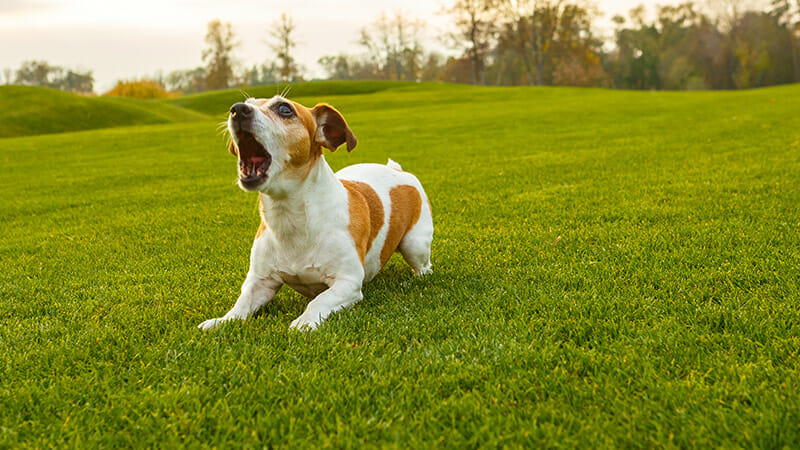How to get your got to stop barking at strangers
Does your dog have a habit of barking at strangers? While it might be awkward for you, keep in mind that dogs most often bark at strangers because they feel tense and nervous. Who is this new person? Are they a friend or not? In the same way you might tell a stranger to back up out of your personal space because you’re uncomfortable, your dog might bark at a stranger for the same reason.
Dogs that bark at people are often called reactive. It isn’t a bad thing in every circumstance, but it’s a behavior that can be problematic—particularly if you don’t want them to bark at strangers.
Want to know how to get your got to stop barking at strangers?
The good news is that this reactive behavior can be fixed over time with consistent training and a process called desensitization. Let’s get started.
What You Need to Know Before Getting Started
Keep these things in mind while training and desensitizing your dog.
1. Don’t yell at your dog to be quiet. They’ll interpret your loud voice as you barking along with them.
2. Make sure training sessions are short and end on a positive note—you want them to look forward to the next session!
3. Be consistent. Everyone in your household must apply the same training techniques so as not to confuse your dog.
Our Top Tips for Stopping Your Dog From Barking
Tip #1: Ignore the Barking
If you think your dog is barking to get your attention, ignore them until they stop. This could take a while, so be patient. While you’re waiting, don’t talk to them, touch them, or even look at them. Giving them your attention, even to tell them to be quiet, only rewards their bad behavior.
When your dog finally stops barking, even if it’s just to take a breath, give them a treat. Your timing is everything, so be quick to give the treat before they start barking again. As your dog begins to figure out that being quiet gets them a reward, extend the amount of time they must be quiet before handing over the treat.
Tip #3: Make Sure to Keep Your Dog Well-Exercised
Getting enough physical and mental stimulation every day means your dog will be less likely to bark out of boredom or frustration. Depending on your dog’s age, health, and breed, they might require a few long walks, a good game of fetch and some interactive toys to stay stimulated. Dog daycare is also a great option to familiarize your dog to strangers and also provides a great form of stimulation.
Tip #4: Desensitize Your Dog
A great way to improve your dog’s reactivity to a certain stimulus (such as encountering strangers and meeting new people) is to slowly and consistently increase their exposure to it over time—and to make sure their interactions with that stimulus are positive!
For example, if you want to get your dog used to encountering strangers without barking, enlist a friend your dog is unfamiliar with and have them stand at a distance. They must be far enough away that your dog won’t bark at them. Give your dog lots of treats as the stimulus moves closer and closer, and keep feeding treats.
Another tactic is to feed treats whenever that stimulus appears, and to stop feeding treats when they leave your dog’s sight. Doing this will teach your dog that seeing a stranger means good things (treats)!
As your dog improves, increase their exposure. A great way to do this is to visit areas where your dog is likely to encounter dog-savvy strangers. Lucky Dog Bar is a great place to do this! You’ll be surrounded by dog-lovers who will be supportive of your dog’s training, which will help both you and your dog feel more comfortable.
Tip #5: Work With a Certified Dog Trainer
If all else fails and the above tips prove unsuccessful, contact a certified dog trainer who uses positive reinforcement for help.
Give these training tips a shot, and don’t be afraid to come visit us at the Lucky Dog Bar for some moral support!




